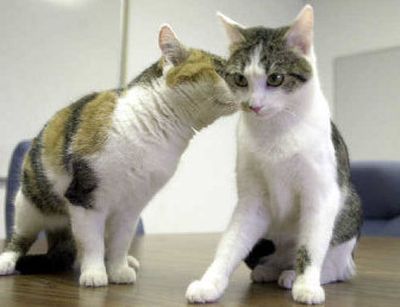Study finds pets, dirt OK for kids

Need a reason to feel less guilty about skimping on your spring cleaning?
Then just tell people you subscribe to the “hygiene hypothesis.”
That’s the well-studied – but yet to be proven – theory that early exposure to dirt and dust and pet dander actually keeps kids from getting allergies and asthma later on.
“Some germs are good for you,” says Dr. Richard Gower, a Spokane allergy and asthma specialist in private practice. “We’ve got many billions of bacteria in us, and that’s OK.”
Numerous studies have set out to test the hypothesis in recent years, including a widely cited Tucson study published in The New England Journal of Medicine. That study looked at how often children developed asthma and wheezing, in relation to their number of siblings and their day-care attendance during infancy.
The study found that children exposed to older siblings and other kids in day care were less likely to develop respiratory problems later on.
Other studies have found similar results in young children who live in homes with dogs and cats.
None of the research has been conclusive, though, so don’t rush out and buy a cat just so your baby can roll around in pet hair.
“It’s very complicated and the final answer isn’t in yet,” says Dr. Dave Moershel, a pediatrician at Group Health Veradale. “It’s too confusing of an issue right now.”
Trouble is, once you already have allergies or asthma, the last thing you want to do is be exposed to whatever it is that makes you sneeze and wheeze. And, since allergies are largely hereditary, it makes it tough to keep allergens around for the sake of the kids if Mom and Dad are suffering.
“That’s the dilemma,” Gower says.
Other recent studies have warned against the growing use of antibacterial cleaners, saying they actually can cause antibiotic-resistant germs to flourish.
“If you wipe out the good ones, then you open the door for the bad ones to come in,” Gower says.
Spokane’s Emily Vancil runs Eden Green Cleaning, a cleaning service that uses only natural products such as white vinegar, baking soda and tea tree oil.
“We do get a little bit overobsessed with getting every germ, and it has to have a label that says antibacterial,” Vancil says.
She adds essential oils, such as peppermint or lavender, to cover the vinegar odor and make homes smell fresh.